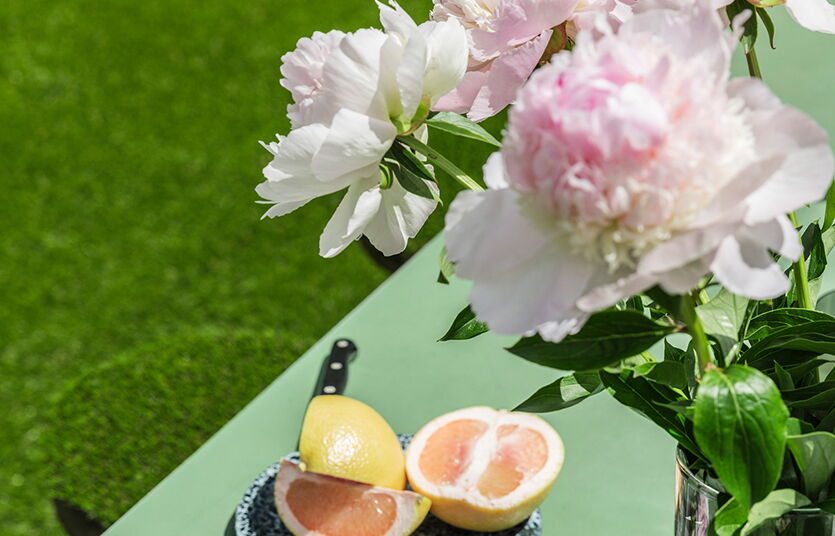How can artificial grass suit your allergies?
We all know at least one person who suffers from allergies and becomes a sneezing mess that constantly blows his/her nose or wipes his/her eyes every few minutes from February until October. This annoying phenomenon is known as grass allergies or hay fever. Hay fever is caused by flying pollen, produced by trees, plants, grass etc. In general, people who suffer from hay fever have red, irritated or swollen eyes, a stuffy nose and sneeze or blow their nose a lot.
Severe allergic reactions can even lead to asthma, hives or anaphylactic shock. Even dogs or cats can suffer from hay fever and start sneezing when they are rolling over the grass. For these unfortunate souls, the most exciting and beautiful time of the year can become a true nightmare.

How can artificial grass help?
Installing artificial grass
When you decide to have artificial grass installed, this might have a positive influence on your allergies. Artificial turf is produced with materials that are allergen free. Of course, it is not a miracle cure, but by installing artificial grass, you can keep your garden pollen-free and therefore increase the distance between yourself and the pollen.
We would recommend you to install artificial grass at entry points to your home, such as air conditioning units, vents, windows and doors. When you enter your home through one of these entry points, you leave the pollen outside. You will notice that your symptoms get less frequent. You will be able to enjoy those long summer nights in your backyard, hosting barbecues, without all the sneezing. Pets with allergies will also thank you for this!
Having Turfgrass artificial grass installed will soon make your neighbours jealous of your evergreen, low-maintenance backyard. It’s up to you to convince them to install artificial grass as well, so you will have even less allergy symptoms from flying pollen! Keep in mind that you will have to clean your artificial grass once in a while thoroughly to erase any pollen that have fallen down on your lawn from nearby trees or plants. By hosing your artificial grass down once every week, you can reduce the pollen significantly.
The benefits of artificial grass
There are a number of other benefits to installing artificial grass. One of these is that you don’t have to spend your time mowing the law to keep it as short as possible, as is recommended when you suffer from hay fever. Mowing a lawn when you have allergies is, to say the least, very uncomfortable.
Keeping the grass short, however, is necessary, since your lawn doesn’t produce as many pollen when it’s young and short. Artificial grass does not need mowing and it doesn’t need watering or spraying with insecticides, making it a more environmentally friendly solution as well. You thus spare yourself and the environment a lot of trouble!Artificial grass has evolved a lot these last years. There are a lot of artificial grass products that are barely discernable from natural grass.
You can choose the colour pattern that you like and you can determine whether you like a bushy look or favour a neat and freshly-cut look. With this alternative to the real thing, why doubt any longer?